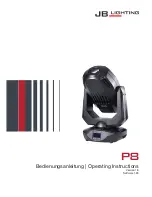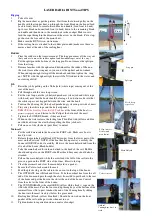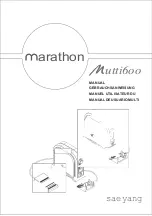
172-65465MA-04 (JH8R-P) 11 May 2018
17
3. Use the following procedure to close the valve and check for leaks:
•
Using the open-end wrench, close by slowly turning the hexagonal head of the
valve stem clockwise until contact with the valve seat is felt.
•
Apply a little more pressure to tighten securely.
NOTE: Using an ordinary open-end wrench (handle length about 160 mm
(6¼
″
)), the valve will close with only a light turn pressure. Tightening
with too much force may result in seizure or damage to the seat.
•
After tightening, place the mirror close to the front of the exhaust port. If the
mirror clouds, the valve is not fully closed; tighten a bit more.
4. When air enters the piping at start-up, it may accumulate inside the trap and
hinder the flow of condensate (air binding). Air binding may also occur during
the normal course of trap operation, due to the slow accumulation of air inside
the trap. The air vent valve on the top of this trap is to be operated only when
air binding has occurred. Follow the instructions in the earlier part of this section
to operate the air vent valve and release the air accumulated inside the trap.
(The air vent valve is to be open only for as long as is necessary to release the
accumulated air. If left open, it is extremely dangerous, so be sure to close
tightly after operation.)
Disassembly/Reassembly of Air Vent Valve
Air Vent Valve
Unit
Remove with a wrench
Consult the table of tightening torques
and tighten to the proper torque
Air Vent Valve
Gasket
Remove the gasket and clean
sealing surfaces
Replace with a new gasket; coat surfaces
with anti-seize
Table of Tightening Torques
Part Name
Torque
Distance Across Flats
N
⋅
m
(lbf
∙ft)
mm
(in)
Air Vent Valve Body
100
(73)
24
(
15
/
16
)
NOTE: -Coat all threaded portions with anti-seize.
-If drawings or other special documentation were supplied for the
product, any torque given there takes precedence over values
shown here.
(1 N
⋅
m
≈
10 kg
⋅
cm)

































